 60 DAY warranty on all custom-made products | 1,000+ 5 Star ★★★★★ Reviews
60 DAY warranty on all custom-made products | 1,000+ 5 Star ★★★★★ Reviews 60 DAY warranty on all custom-made products | 1,000+ 5 Star ★★★★★ Reviews
60 DAY warranty on all custom-made products | 1,000+ 5 Star ★★★★★ Reviews
Missing teeth can significantly impact your ability to eat, speak, and smile confidently. Dentures and partial dentures are a common solution for those seeking to restore their dental function and appearance. Although dentures have advantages, they can be challenging and uncomfortable for some people to adapt to.
If you’re new to dentures or planning to get them, this blog post will explain how long it takes to feel normal and offer tips and advice on making the process smoother.
Adjusting to dentures can take some time, and it’s expected to experience some challenges during the adjustment period. Here are common issues you may encounter while getting used to your new dentures:
Minor discomfort is normal, but you should consult your dentist if you experience severe or constant pain
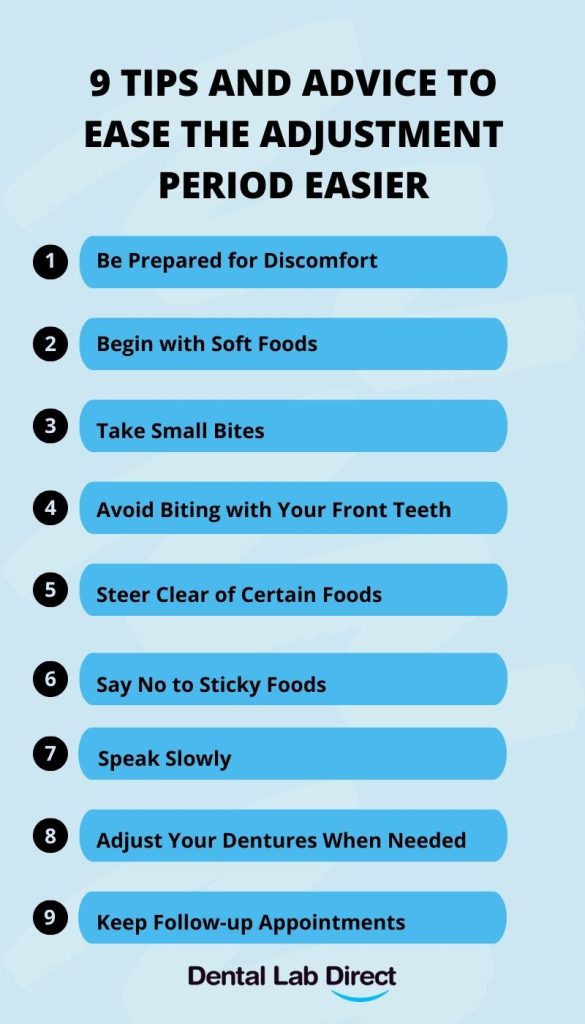
Here are some tips and advice to help make the adjustment period easier for you:
When adjusting to dentures, you must be prepared for discomfort. Your mouth may feel sore or tender for a few days after the initial placement or adjustment.
To ease the discomfort, you can do the following advice:
Follow your orthodontist’s instructions for maintaining good oral hygiene while wearing dentures.
It’s recommended to begin with soft foods to avoid putting too much pressure on the dentures or aligners.
Foods such as those stated below are good options:
As the discomfort subsides and your mouth adjusts to the dentures, you can gradually introduce firmer foods into your diet.
Taking small bites is another way to avoid putting too much pressure on the braces or aligners. Cut your food into smaller pieces and chew slowly and carefully. This will not only help you avoid discomfort but also aid in the digestion process.
Biting with your front teeth can put unnecessary pressure on the braces or aligners, leading to discomfort or damage.
Instead, try to bite and chew with your back teeth or molars. This will distribute the pressure evenly and reduce the risk of discomfort or damage.
These include hard or sticky foods such as popcorn, nuts, candy, and gum. Also, avoid biting into foods such as apples or corn on the cob, which can cause dentures to break loose. Stick to softer foods or cut harder foods into smaller pieces to reduce the risk of damage.
Sticky foods can get stuck in your dentures, making them difficult to clean and potentially causing damage to it.
Eating sticky foods can also raise the chances of developing cavities and gum issues. Instead, opt for softer foods and cut fruits and vegetables into small pieces to make them easier to chew.
If you wear dentures, adjusting to speaking with them may take some time. Try speaking slowly and clearly, enunciating your words to make the adjustment easier.
It will help you get used to the feeling of the dentures in your mouth and improve your speech over time. Practice speaking aloud, such as reading aloud or talking to a friend or family member, to make you feel confident and more comfortable with your dentures.
Dentures may need to be adjusted occasionally to ensure a comfortable fit and optimal functionality.
Signs that your dentures may need to be adjusted include:
If you notice any of these issues, set an appointment with your dentist to evaluate and adjust your dentures.
Whether you wear braces or dentures, keep up with your follow-up appointments. Regular appointments with your orthodontist or dentist are essential for monitoring your progress and making necessary adjustments to your treatment plan. They can also guide proper oral hygiene and answer any questions or concerns.
Attending your follow-up appointments can ensure the best possible outcome for your dental treatment.
Adapting to new situations can vary from person to person, with some individuals naturally adapting more quickly than others.
This is also true for adapting to dentures, which various factors can influence.
Do you ever get used to dentures? If you have experience wearing full dentures, adapting to a new set may take less time.
Those previously worn poorly fitting acrylic dentures may have already developed some control; however, if you require a full immediate denture due to severe gum disease and having all loose teeth extracted. In that case, it will be a major shock to the system and require the most adjustment.
Our capacity to adapt, learn new skills, and adjust to changes decreases as we age. Because of this, older patients may find it more challenging to get used to changes than younger individuals.
In some instances, the anatomy of the mouth may not be suitable for complete dentures. For example, if the bony ridges that support the denture are significantly diminished, greater muscle control will be required to ensure a comfortable and stable fit.
The amount of saliva you produce can also impact the adjustment period. If your mouth is too dry, keeping your dentures in place will be harder. However, too much saliva can cause dentures to slip and slide around in the mouth.
With proper care and regular follow-up appointments, you can adjust to wearing your dentures relatively quickly.
Adjusting to dentures is a unique experience that varies from person to person. Generally, it can take several weeks to a few months to become fully accustomed to wearing dentures.
The first few days are typically the most challenging, with common discomfort, soreness, and difficulty speaking and eating. However, with time and practice, most people adjust well to dentures and can easily resume normal activities.
Adjusting to dentures can be challenging. But with patience, practice, and the right support, you can easily overcome any initial difficulty and enjoy wearing your dentures for years to come.
Here at Dental Lab Direct, we aim to keep things user-friendly and stress-free. When you complete our three-step ordering process, you save a trip to the dentist’s office and will receive your custom appliance in just a few weeks.
Interested in improving your smile? Get started today.

Satisfaction is our goal. If for any reason you aren't happy with your custom-made DLD appliance, just contact us and we'll make sure you are.
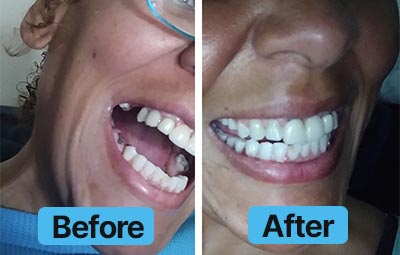
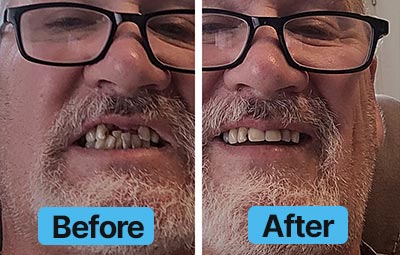
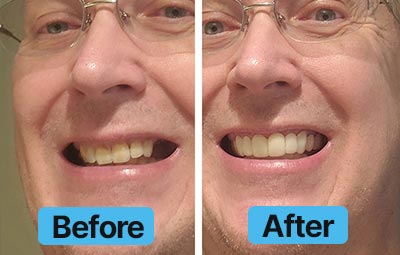
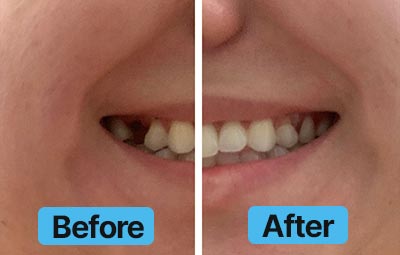
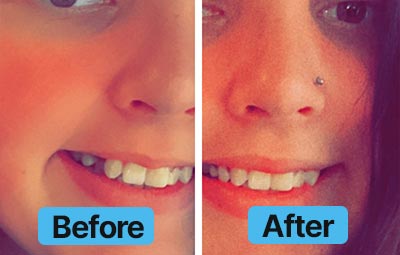
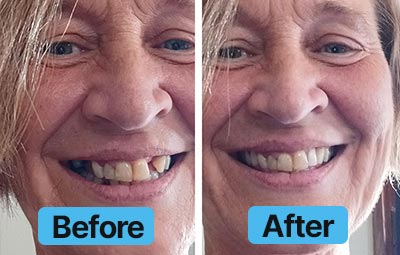
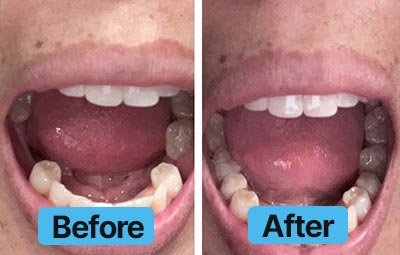
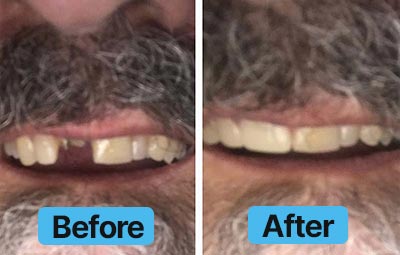
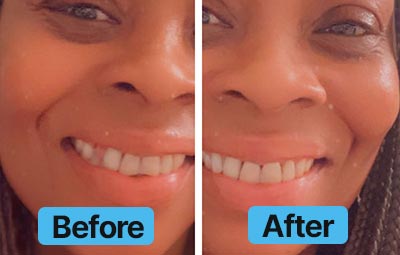
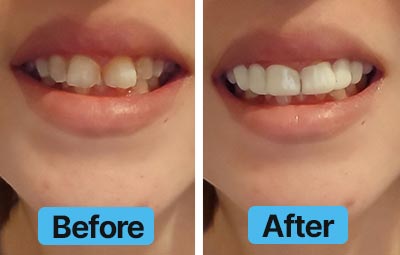
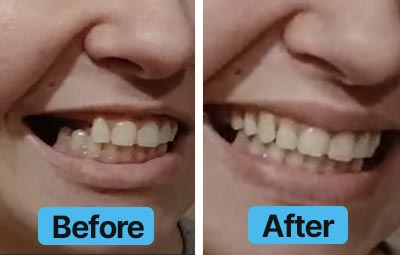
Great fit right out of the box. Much more comfortable than all those \"METAL\" partials that never fit right and required multiple trips back and forth to the dentist. Looks so natural and you don\'t see any metal prongs which is a big plus. I wish I would have found you guys years ago.
Awesome job. Thanks!
Thank you for making the process of the partial denture for my Mom comprehensive, simple and most importantly accurate. For years, people have trusted the dentist to assist them and unfortunately when profit rules, care and quality suffer. Grateful for Dental Lab Direct and your care /professionalism.
I was very pleased with the product and the timeline. When I got previous ones from dentist it cost more than double and had to keep sending them back. They got it perfect first try. Thanks
Very pleased. I keep it clean and moist. I also soak it in 105 degrees water before inserting as this helps make a perfect bond.
I love them it took a couple of days to get use to them, my mouth was a little sore. Great fix thank you.
Weary tight to start...have to soak in hot water for 1.5 minutes to 2 min...lot of pressure to the supporting teeth on the sides... has been getting better with time...pretty happy with the results..
hey look so real, and I've received so many compliments on my smile
I needed to replace 4 top teeth. The lexible partial did it for me!
I neeed a cheap and quick fix. This got the job done.
I walked around without a tooth for years, I;m so happy now